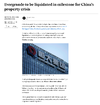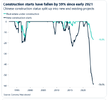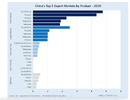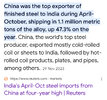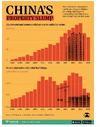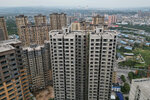greggles
I'll be back!
- Joined
- 28 July 2004
- Posts
- 4,515
- Reactions
- 4,654
It took two and a half years but Evergrande Group has finally been ordered into liquidation by a Hong Kong court after the company was unable to reach a restructuring deal with creditors.
With US$325 billion in liabilities, this corporate collapse is going to have a huge impact, and other companies could well be following Evergrande into liquidation.

 www.bbc.com
www.bbc.com
With US$325 billion in liabilities, this corporate collapse is going to have a huge impact, and other companies could well be following Evergrande into liquidation.

Evergrande: Crisis-hit Chinese property giant ordered to liquidate
The Hong Kong order may matter little in the mainland, where most of the property giant's assets are held.

